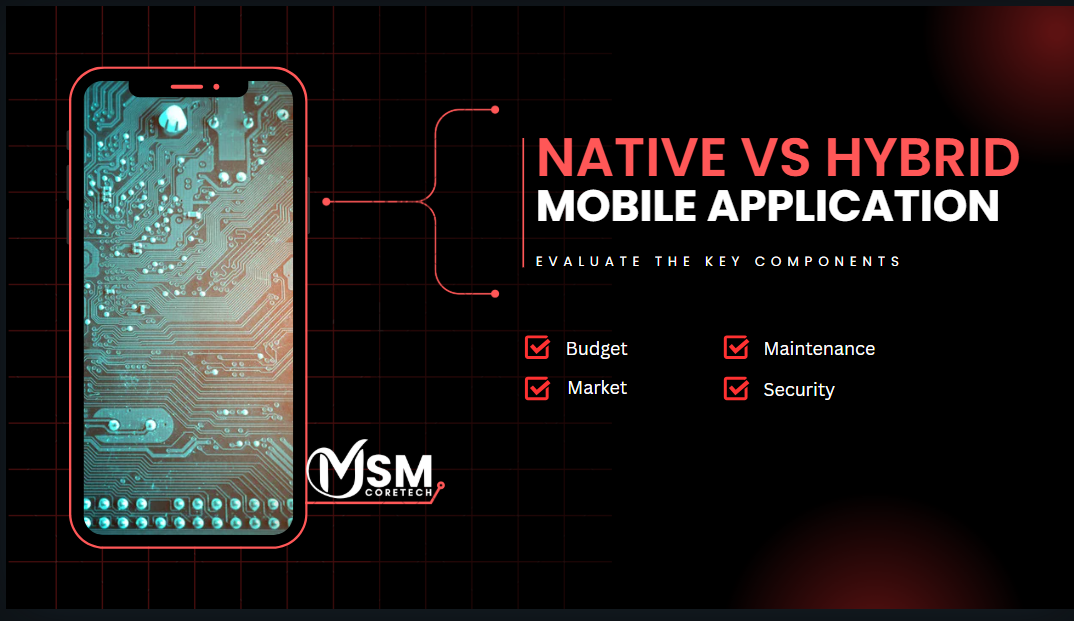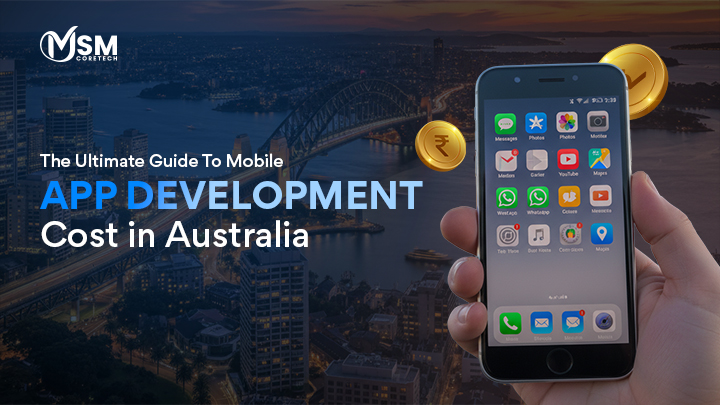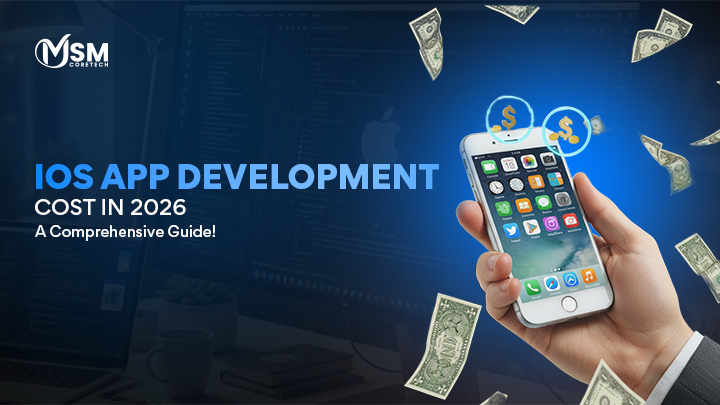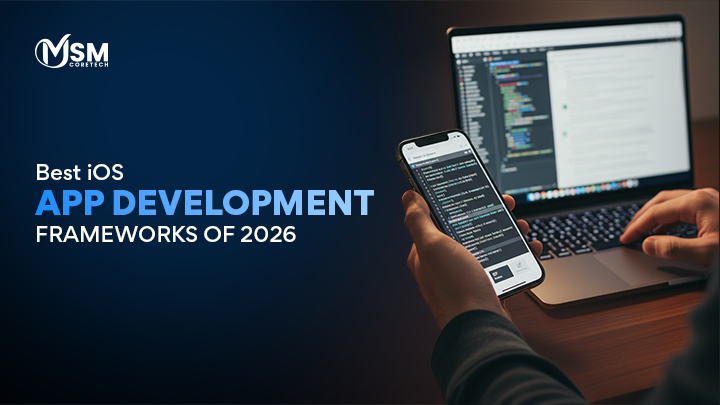Key Components to Evaluate Before Building a Mobile App: Native vs Hybrid

The field of technology is changing rapidly, and in the last few instances, the use of mobile phones has dramatically expanded. That is why the growth of mobile phones has become prevalent, essential, and observable.
It is being used around the world by industries and consumer groups. In the modern age, mobile apps are not only instruments of communication but also advantageous tools.
They have turned prominent, and this has provided an enormous opportunity for companies to differentiate from others with the layout and development of successful, user-first apps. A recent report by Statista says that worldwide mobile app profits will rise to $613 billion by 2025.
However, a company always has to strategize efficiently to develop a mobile application that truly speaks out. Perhaps, it is an imperative decision to pick between native and hybrid application development. Both the development methods have their own advantages and disadvantages yet there is no universal solution and, as a consequent outcome, the native vs. hybrid app development problem is a heated subject in the tech world.
In this blog we are going to see the differences between using a native and hybrid mobile application by analyzing all the advantageous and disadvantageous factors.
We will also guide you on the right way to evaluate the important components before building a native or hybrid mobile application and how to select the suitable platform depending on your business goal, functionality, desired audience, and overall app development process.
What is a Native App?
A native app is a software program particularly developed and lined up to run on a specific operating system (OS) and hardware setup. For instance, Apple Maps only runs on IOS devices and delivers an outstanding user experience and access to all the Android-related features. They are built using the programming language and software development kit that suit the platform. It allows them deep integration with the device’s hardware and attributes. Many iphone mobile app development company teams choose this path because of the outstanding performance it offers.
When Is a Native Application the Ideal Choice
Create a native app when:
Performance is the main factor
Native development delivers an interface that provides the best and smoothest user experience. It is important for applications using heavy graphics, games, or those that need a smooth background to work on a device.
The target is clear
A distribution channel or operating system may appeal to you due to technical or commercial factors. Building coding capacity comes after choosing the platform and audience for many.
The device feature approach is important
Native gives the most trusted access when your application has to connect directly with the GPS (Global Positioning System), camera, contact details, or other device-related functions. This is particularly true in sectors like healthcare, where healthcare mobile app development companies often rely on native builds.
Platform’s look and feel is crucial
Native applications are developed to stick to the design recommendations of that particular platform. This offers a different and outstanding experience to the user and an easy-to-use interface.
A financial plan allows for different development
Developing and nurturing different native applications for two different OSs (iOS application development and Android application development) calls for a lot of time and resources. Planning for an expert team is very important if you want to avoid the wastage of time and resources.
Advantages of Native Application
- Enhance software functionality and its appearance and user experience.
- Deal immediately with features created by the OS using the Xcode and Android Studio environments. For Apple, it also operates with devices.
- Native mobile applications operate much more efficiently with regard to consumer data and results. These applications enhance the look, feel, and performance of the application while making use of the device's operating system interface.
- Improved exterior hardware interaction and combination of gadgets.
- Native apps are built especially for the platform. These apps are rapid and provide excellent performance. These can be downloaded from different app stores and are not available on browsers.
- A chance for outstanding design and customer experience. For instance, the complex UX/UI design and graphics construction. Native app interface lets its users understand more about how to move through the app.
The Drawbacks of Native Application
- Developers have no flexibility regarding the platform for developing native apps. They also need to build separate codebases for each platform (building an Android application or iOS), which can slow the timeline significantly.
- Native app development requires more labor, which adds to the time and cost of development.
- It has a poor Cross-Platform connectivity score, which lacks versatility. This is a significant limitation for companies attempting to attract an audience by expanding their development assets.
What is a Hybrid Application?
A hybrid app is a programmed app that incorporates components of both native and web apps. The applications are basically web applications that have a native interface. The interface connects to any features the mobile device provides via an integrated browser once users have downloaded and configured the app from an app store. The web browser and its extensions run on the server side and are undetectable by the user.
Hybrid apps are widely used. They enable engineers to generate code for a mobile app one time and yet support various platforms. The platform might operate a little slower than the native or web version of the same app because hybrid apps add extra components between the code origin and the target platform. For this reason, a hybrid mobile app development company is often chosen when businesses need to reach both iOS and Android users swiftly.
When Is a Hybrid Application the Ideal Choice
Budget is limited
If you have a restricted budget for development Hybrid apps can be far more affordable because of their shared source code across several different platforms.
Coding is collaborative
While interacting with web platforms, it is simpler to do full-stack development, but in some exclusive App dev environments, you have to learn a couple of languages that have no more widespread use in the tech business.
Launch time is urgent
When you want to roll out an app fast and effortlessly over many different platforms, hybrid app development can speed up the process.
Need a straightforward application
For little complicated applications that do not need comprehensive native features or complex graphics.
Require frequent updates
If you plan on implementing regular updates or modifications, hybrid apps enable faster updates throughout various platforms rather than needing individual deployments.
Targeting many different platforms
Whenever you desire to connect with a broad audience over different device types (like iOS or Android) rather than paying the expenses of developing distinct native apps. Many enterprise mobile app development companies use this method for scalability.
Advantages of Hybrid Application
- Hybrid apps require only one source code, which can function over many different platforms
- Hybrid apps are suitable for companies wanting to launch their app in the market, which lets them target a huge audience.
- The hybrid system performs adequately for less complicated apps like expense splitting, file management, photo sharing, or collaboration platforms like Zoom because of the dependence on their website and desktop equivalents.
- They are independently operating apps that are superior with a native framework.
- A hybrid app's cross-platform capabilities and single code source minimize the cost of switching between platforms because multiple platforms don't need to be built.
- A hybrid app can be developed faster because it does not need any native requirements, and the coding languages used are basic (HTML, CSS, and JavaScript).
- It can take less than half a year to develop a hybrid app, based on the method, specifications, and features of the application.
The Drawbacks of Hybrid App
- A hybrid structure is not suitable for you if you want to create a game with high performance and crisp graphics.
- Hybrid apps have more difficulty because they are made of less developed platforms, fewer user fundamentals, and, in the most extreme situation, no instructions.
- It does not provide integration to native features. For instance, Apple functions like, touch ID would certainly not work in a hybrid framework if there were no plugins for that.
Complete Summary of Native App vs Hybrid App
Here is the summary that gives an extensive comparison of native apps and hybrid apps in terms of:
Performance
Native Apps: Without sacrificing quality, native apps can offer robust and quick 3D, gaming, and other applications.
Hybrid Apps: The method can provide basic app versions with quality comparable to native, but it cannot meet the performance and speed requirements for high-end apps.
User Experience (UX)
Native Apps: The app is developed to comply with the particular design requirements and is in accordance with the best standards. They carry out user experience design for a particular OS.
Hybrid Apps: The UI and user experience design are standard for every platform, as the app is developed for several different platforms. The consistency is very crucial in such a case.
Budget and Development
Native Apps: Native development is expensive because you have to pay a dedicated app developer, fix the infrastructure, and provide the solution.
Hybrid Apps: You don't need to hire specialized infrastructure or resources for mobile web apps that use hybrid technologies. You can use the web app development team to deliver the solution.
Pro Tip: If you would Like to Find Out the expenses of Mobile Application Development. Connect with the best on demand mobile app development company and talk about your app development objectives.
Time to Market
Native Apps: If you intend to build for both platforms, it will demand time to develop. The developers have to produce the code, create the user interface, and develop interactions for the particular platform.
Hybrid Apps: In a hybrid app a developer creates a single codebase and a consistent design to integrate it with multiple platforms. As they are simply web apps created using compatible web techniques, you need to make their websites accessible.
Access to Device Features
Native Apps: The native app can instantly utilize the device elements, as they have been developed using the specific mobile app guidelines.
Hybrid Apps: Hybrid apps are capable of using most of the elements from the device. In some instances, the app will require additional help, like a plugin, to access its features.
Security
Native App: A native iOS or Android app is stored in the specific mobile device and functions.
Hybrid App: The hybrid mobile app is not dependent on the user's device and can be used in a variety of web browsers. You should know that not all applications are dependent on plugins.
Scalability and Maintenance
Native Apps: To use the most recent version, the user must make sure that they have updated the app in the app store.
Hybrid Apps: Since hybrid apps are more like web apps, users don't need to update them in app stores to get the most recent version.
Developer’s Availability
Native Apps: To create a platform-specific or native app, you need mobile developers who are skilled in particular programming languages, like Swift for iOS.
Hybrid Apps: The development procedure is simple and the developers who are skilled in web technologies may choose to create hybrid apps. These apps are not dedicated to any device or operating system.
Offline Functionality
Native Apps: Native apps offer outstanding online support with the help of native APIs.
Hybrid Apps: Offline functionality in hybrid apps is possible, but it depends on how they are implemented. These apps might require more work.
Long-Term Vision
Native Apps: Native apps are best for continuous and complete growth or a platform-dependent innovation.
Hybrid Apps: Hybrid apps are suitable for early-stage MVPs or multi-platform apps but may limit advanced future capabilities.
Key Difference Between Native App and Hybrid App
| Criteria | Native | Hybrid |
| Performance | Excellent performance with faster load times and smoother transitions. | More gradual due to web-based rendering, but fine for less complicated apps. |
| User Experience UX | Excellent user experience with OS-specific platform UI guidelines. | Cross-platform user interface, but possibly less intuitive. |
| Budget and Development | Higher cost since iOS and Android require separate codebases. | More affordable with a single codebase for multiple platforms. |
| Time to Market | Longer development cycle due to separate builds. | Longer development cycle due to separate builds. Faster deployment and easier updates. |
| Access to Device Features | Full access to hardware features like camera, GPS, fingerprint, etc. | Limited access; often needs plugins, which may cause compatibility issues. |
| Security | Stronger security protocols, ideal for sensitive apps (banking, healthcare). | Sufficient for general use; less suited for sensitive needs. |
| Scalability & Maintenance | Very scalable, but maintenance is separate for each platform. | Easier maintenance with a shared codebase. |
| Offline Functionality | Better offline support with native APIs. | Possible, but may need extra work depending on the implementation. |
| Developer Availability | Requires particular platforms for developers (Swift for iOS, Kotlin for Android). | Easier to find developers skilled in web tech (React Native, Flutter, etc.). |
| Long Term Vision | Best for sustained, comprehensive growth and platform-specific innovation. | Good for MVPs or cross-platform apps but may limit advanced future capabilities. |
Final Thought
Native app development performs optimally when you want to provide an advanced, extremely secure, and powerful app solution. Nevertheless, if you want to build an app for many different platforms, multi-platform app development is a beneficial strategy. It enables you to instantly build and launch the apps. Hybrid apps do not require authorization, which helps in accelerating the app launch.
If you are thinking about which development approach to choose, contact MSM Coretech Innovation, a top rated mobile app development company, for assistance. As a leading cross platform mobile app development company, we provide simple and engaging app solutions. Let's talk about your app needs and requirements and work together with our expert team to transform your idea into a working application.
Related Blogs

The Ultimate Guide To Mobile App Development Cost in Australia
Explore mobile app development cost in Australia with detailed pricing by app type, process, timelines, and factors to plan your app budget confidently.
Read More

iOS App Development Cost in 2026: A Comprehensive Guide!
Want to build an iOS app, but don’t have any idea about the cost? Stick to the entire guide till the end and find out the iOS app development cost in 2026.
Read More

6 Ultimate iOS App Development Frameworks in 2026 - Explained!
Are you the one who wants to know about the latest iOS app development frameworks of 2026? Here’s a chance to learn about the best 6 app development frameworks.
Read More



